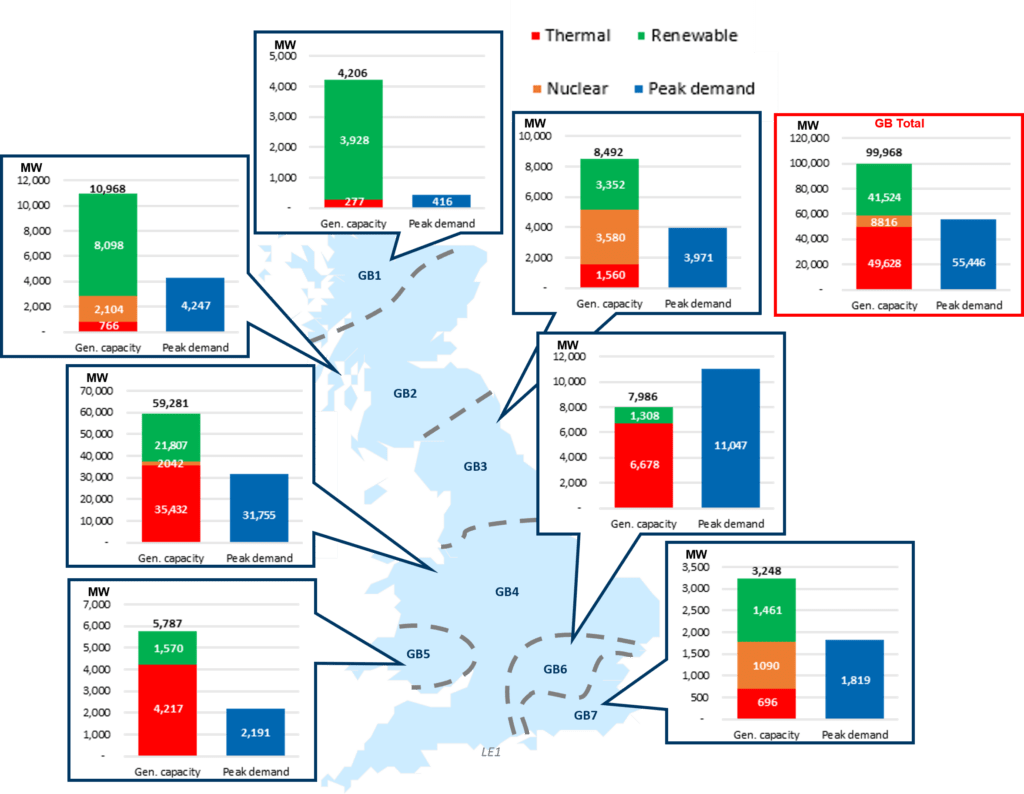A new report by Energy Systems Catapult (ESC) shows that reforming the UK electricity market, so that wholesale prices reflect local supply and demand conditions, could save consumers billions as the country transitions to a net zero grid.
The report ‘Location, location, location’ by Energy Systems Catapult, sets out the results of a study commissioned by Octopus Energy, which found that wholesale market reforms could save energy billpayers around £30bn off the cost of electricity in the period to 2035.
The study found that moving to a market with locational pricing for wholesale electricity would help deliver a more affordable, flexible and clean electricity system.
This would more accurately reflect the real-time challenges of managing supply and demand on a low carbon grid – encouraging more efficient operation and the right balance of investment in generation, grid distribution, and technologies that provide flexibility and storage.
This will incentivise investment in places that are not only good for generation (e.g. good wind resources) but also offer best value for delivering that power to users.
Locational pricing also encourages efficient operation and investment in the right mix of energy storage and flexible technology to deliver power efficiently to users across the country.
Without reform to current arrangements there is a risk of consumers having to pay spiralling costs to balance the electricity system.
Currently electricity generators can sell into the national market even if the power network cannot physically transmit the electricity to where there is consumer demand.
More than £1 billion is spent each year by the electricity system operator on “balancing actions”. These are actions the system operator has to take to correct the results of wholesale markets that are currently too simplified to reflect real conditions on the grid.
This includes paying some generators – including wind farms – to switch off to manage physical constraints on the grid and to ensure that the system functions in real time. The cost of these actions has been rising in recent years and is predicted to increase further.
Octopus Energy, Director of Regulation and Economics, Rachel Fletcher, said: “Going green should lower energy bills for all consumers and strengthen Britain’s energy security. To get to net zero quickly and cheaply, we need to transform the energy system that was designed for a different era.
“This important report shows that radical changes to the wholesale market are needed to make the most of local green electrons when they are abundant, drive investment to places where it is needed the most and make green energy cheaper for all.”
Energy Systems Catapult, Senior Advisor: Net Zero Policy, George Day, said: “Getting energy policy right has never been more important. Surging prices and the war in Ukraine remind us of how central energy is to our cost of living, economic competitiveness and national security.
“But our wholesale electricity markets were designed for a different age, with a single wholesale price, meaning power plants sell their electricity on a national market even if there is no demand for that power or no way of transporting that power hundreds of miles to where it is needed. This is increasingly out of step with reality in a system that is being transformed for net zero.
“The UK’s generation mix is regionally diverse – a single price across GB masks the underlying reality of major variations in the supply and demand balance across regions. This regional variation is growing more marked as we decarbonise the grid and rely more on renewable generation located further from demand.
“Reforming our wholesale electricity markets – as other countries have already done – can unlock major benefits such as incentivising to switch to smarter, cheaper and more flexible technologies.”
Image: courtesy ESC












